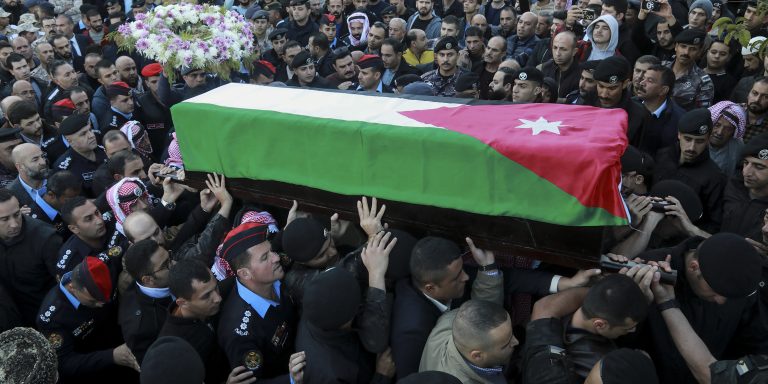INTELBRIEF
December 22, 2022
IntelBrief: Police Killings in Jordan Reflective of Broader Political Tensions

Bottom Line Up Front
- Three Jordanian police were killed earlier this week, attacked during a raid on the hideout of suspected militants who allegedly have links to the so-called Islamic State.
- The turmoil stems in part from ongoing protests against fuel prices that have broken out throughout the country, led by bus and truck drivers who are demanding government reforms.
- The protests reflect broader tensions within Jordanian society, where poverty, unemployment, and general malaise, especially among the country’s younger generations, have led to a population that feels neglected and marginalized.
- Perhaps most concerning for Jordan’s leader, King Abdullah II, is that the killing of the police has exacerbated pre-existing tribal divisions while simultaneously exposing a deep rift between large segments of the population and the government.
Three Jordanian police were killed earlier this week, attacked during a raid on the hideout of suspected militants who allegedly have links to the so-called Islamic State. The operation resulted in the arrest of nine individuals and netted a large cache of firearms and ammunition. An official police statement said the officers were “martyred in a raid on a terrorist sleeper cell that holds Takfiri ideology,” referring to Salafi-jihadists. The main perpetrator, a 20-year-old man, was killed in the raid, and four of his brothers were detained following the operation. According to Reuters, one of the suspects’ brothers had traveled to Syria to fight alongside ISIS there. The assailants were known to authorities as potential terrorist threats—they formed part of a jihadist network that was allegedly planning to further destabilize the Jordanian government.
The police were killed in the southern city of Maan, where they were staging a raid to capture individuals believed to be responsible for killing a policeman one week ago. That initial incident followed clashes with protesters demonstrating against high fuel prices. Protests and strikes against fuel prices have broken out throughout the country, led by bus and truck drivers who are demanding changes. Earlier promises of reform by the government have gone unfulfilled. Several consecutive years of COVID-19 restrictions, frustration with low wages and a skyrocketing cost of living have combined to form a combustible situation. Protesters smashed cars and burned tires in the most substantial unrest to rock Jordan in recent years. Dozens have been arrested with many more sought by the authorities. Raids and arrests are likely to continue throughout the remainder of the year.
The protests reflect broader tensions within Jordanian society, where poverty, unemployment, and general malaise, especially among the country’s younger generations, have led to a population that feels neglected and marginalized. Throughout Jordan, there are issues between local populations and the government, including in many provincial areas. Rural communities have particularly experienced a significant decline in their standard of living. Grievances are often related directly to a lack of dignity, as mentioned by Rami Khouri, a longtime expert on the region and professor of journalism at the American University in Beirut. The Jordanian government is unable to create sustainable jobs for large portions of its population, and with social services declining, inequality is rising, compounded by accusations of widespread corruption. In an effort to quell the protests and calm the situation, the government has called for easing tensions. Such calls have not been well received by protestors and strikes and demonstrations are projected to continue through the end of December. There has also been a clampdown on social media usage, with TikTok being temporarily banned by Jordan’s Public Security Directorate.
As Amman is hosting the second installment of the French-sponsored Baghdad Conference for Cooperation and Partnership, authorities have deployed roadblocks throughout Jordan and anti-riot police to quell the unrest. The summit includes notable powerbrokers from the Gulf and broader Middle East, as well as the European Union. Perhaps most concerning for Jordan’s leader, King Abdullah II, is that the killing of the police has exacerbated pre-existing tribal divisions. The King released a statement suggesting that the government “will not tolerate violence against our security personnel,” and will “deal firmly” with anyone involved in the recent incidents. The killings have also exposed a rift between large segments of the population and the government. Across the region, in Lebanon, Egypt, and elsewhere, the possibility exists for similar fissures developing between populations and the governments that rule over them. Jordan was one of the few countries relatively unscathed from the tumult of the Arab Spring. Yet, as mentioned above, many of the same grievances and drivers of instability are present in Jordan, and indeed are responsible for protests over soaring fuel prices and cost of living. Without a comprehensive and well-resourced strategy to ameliorate current tensions, the situation in Jordan will remain precarious, leading to concerns of instability that could spread to other countries in the region.